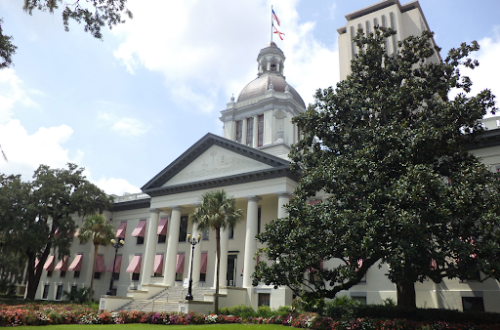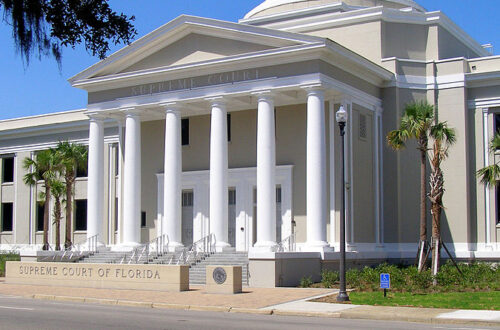On July 24th, Judge Charles Dodson of the Florida 2nd Judicial Circuit Court ruled that Marsy’s Law does not apply to police officers on duty. He ordered the release of the names of two police officers, including the officer responsible for the death of Tony McDade.
Two months ago, Tony McDade, a Black transgender man, was shot and killed by a police officer in Tallahassee. The Florida Police Benevolent Association (PBA) filed a lawsuit to prevent the City of Tallahassee from releasing public records with the name of the officer, arguing that the officer was a victim of aggravated assault by McDade.
The PBA argued that the officer who shot McDade as well as another officer named in the lawsuit were both entitled to protection under the victim rights amendment known as Marsy’s Law because they were both victims of aggravated assault at the hands of suspects.
Marsy’s Law was passed as a Florida constitutional amendment in 2018. The amendment entitles crime victims to certain rights, including the withholding of confidential information that could be used to locate and harass them. The PBA argued that the two officers named in their lawsuit should be considered crime victims protected under Marsy’s Law. If true, this would warrant the withholding of their names.
In his ruling, Judge Dodson disagreed.
Dodson wrote in his official ruling, “The Court finds that the explicit language of Marsy’s Law was not intended to apply to law enforcement officers when acting in their official capacity.”
The ruling has been hailed as a victory for First Amendment rights advocates. Several media organizations intervened, or joined the ongoing case, including USA Today, the Tallahassee Democrat and the Miami Herald Media Company.
Mark Caramanica, a lawyer for the media organizations, told the Tallahassee Democrat that “Today’s ruling was a win for public oversight and police accountability”.
The PBA has filed their intent to appeal Judge Dodson’s Friday ruling. The case will now go to the 1st District Court of Appeals.
The PBA has also argued that an automatic stay of the ruling is applicable, meaning that the names would not be released until the appeals court reviews the case.
The City of Tallahassee disagrees. As City Attorney Cassandra Jackson told the Tallahassee Democrat, “The court will decide whether the city can proceed with release of the records.” If a stay is granted the police officers’ names would continue to be withheld until after the case goes to the 1st District Court of Appeals.
In a statement, Marsy’s Law for Florida said “Police officers who have become victims of crime deserve the same constitutional rights as everyone else.”
The statement goes on to say that “if a determination is made that a police officer has broken the law in the case, they become a defendant in that case and as such they automatically lose all their rights as a victim under the Marsy’s Law provision of the Florida Constitution and their name must be released.”
Versions of Marsy’s Law in other states have also faced judicial proceedings. In California, a case involving Marsy’s Law reached the California Supreme Court. In North Dakota, police officers have also invoked that state’s version of Marsy’s Law.
Judge Dodson’s ruling will be important in setting a precedent for Marsy’s Law in Florida.
Featured image: Tallahassee, Florida where Judge Dodson recently ruled on a case involving Marsy’s Law. (Unmodified photo by UrbanTallahassee used under a Creative Commons license. https://bit.ly/2P5N2Rn)





